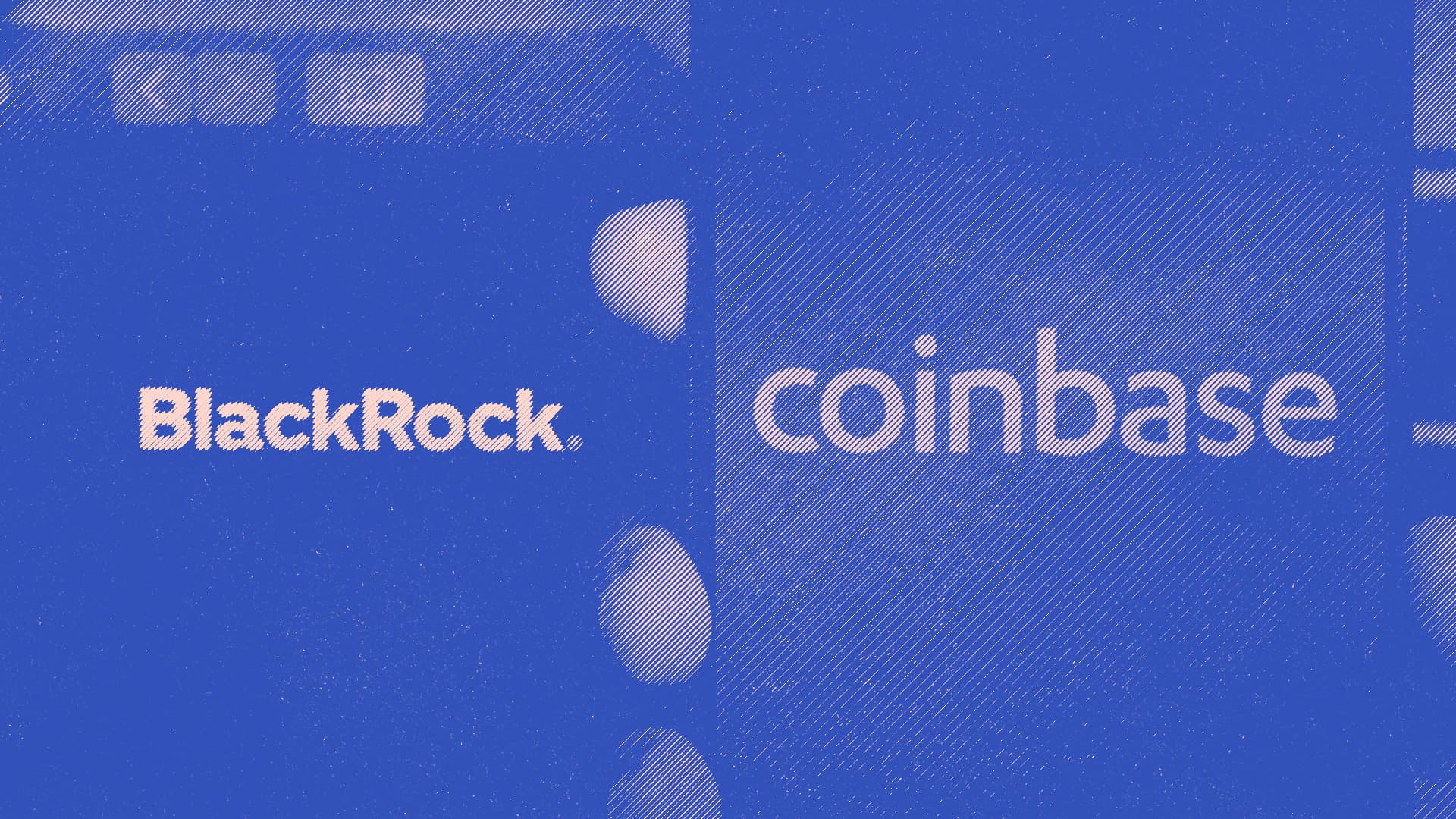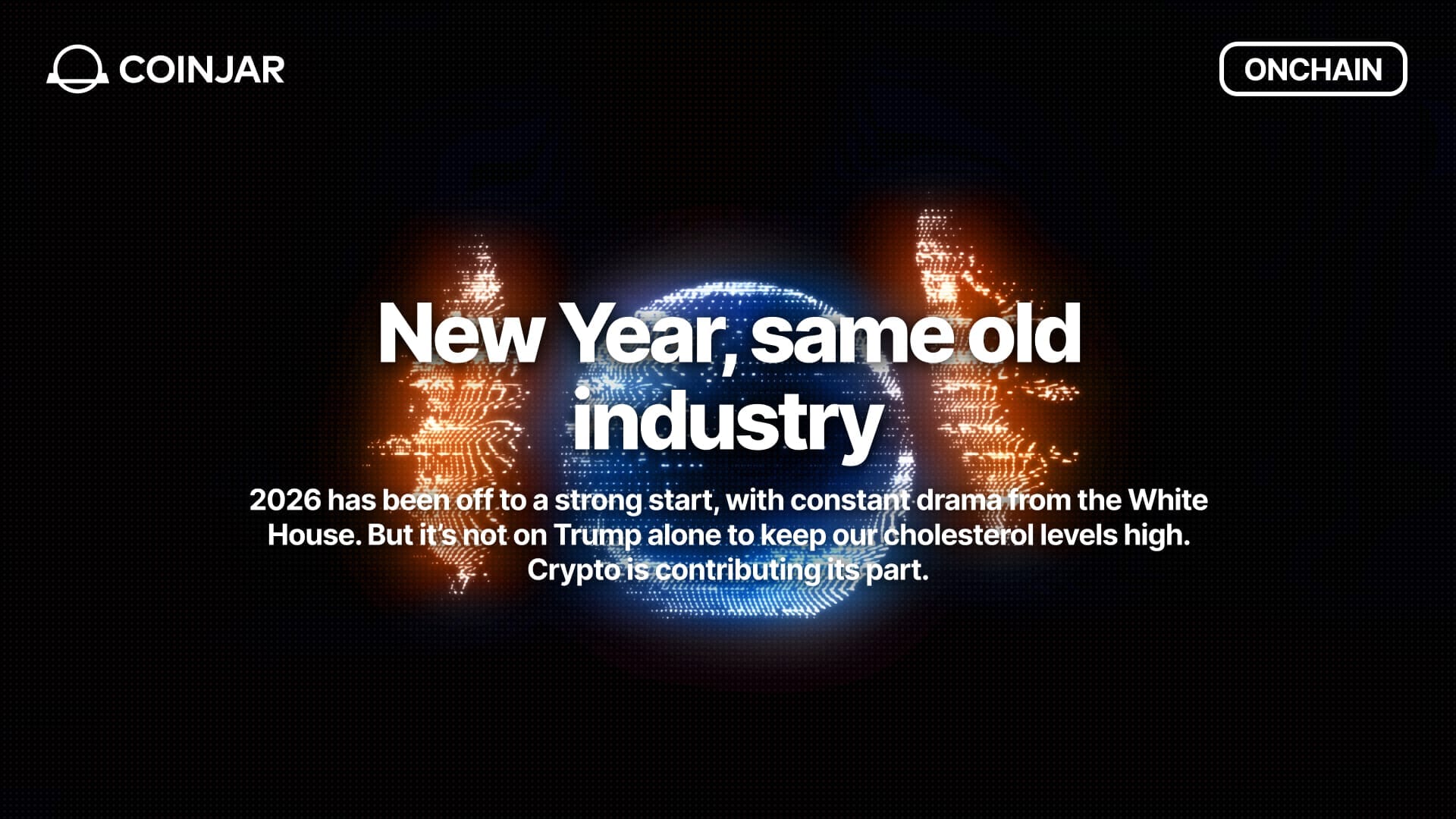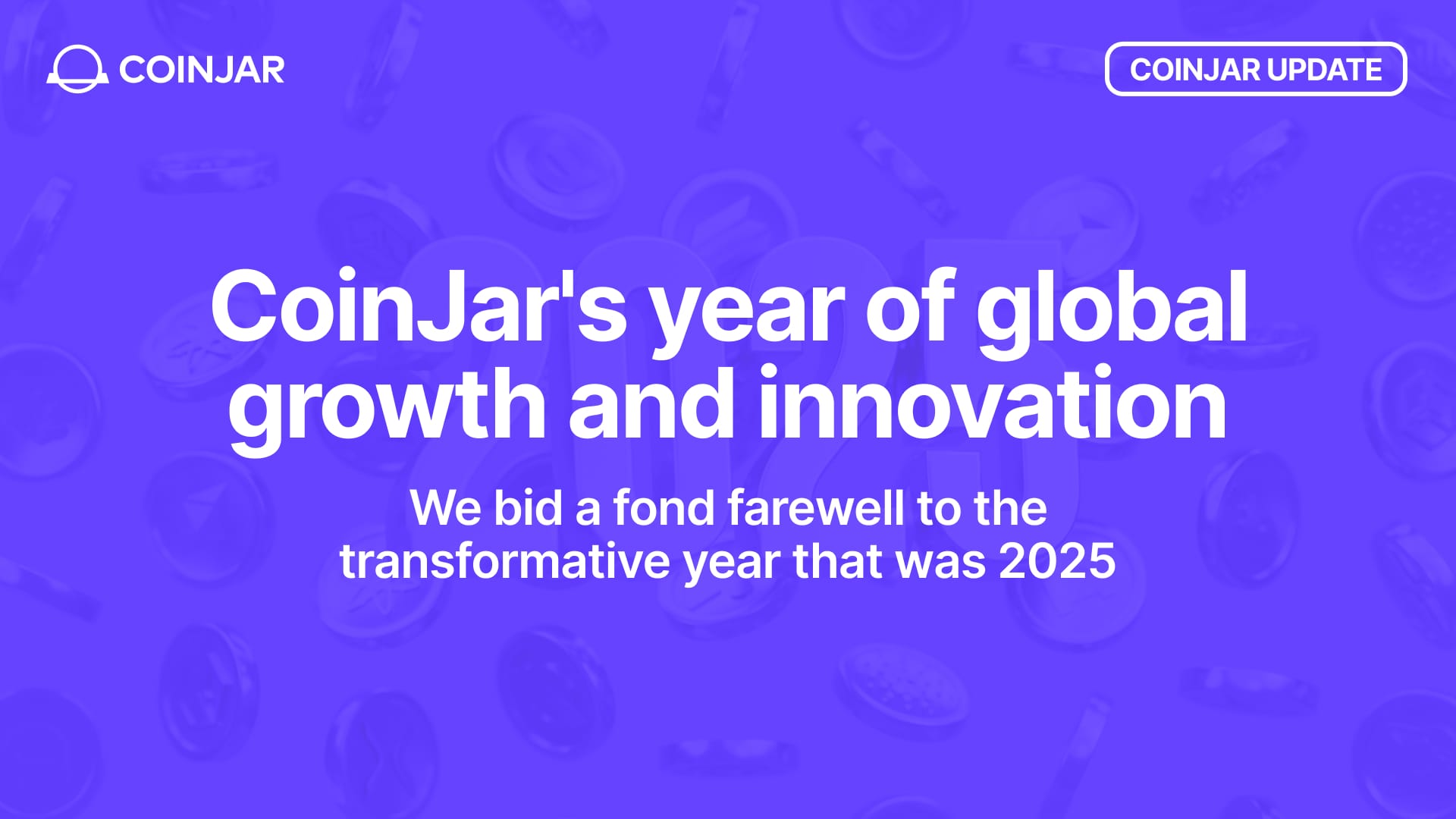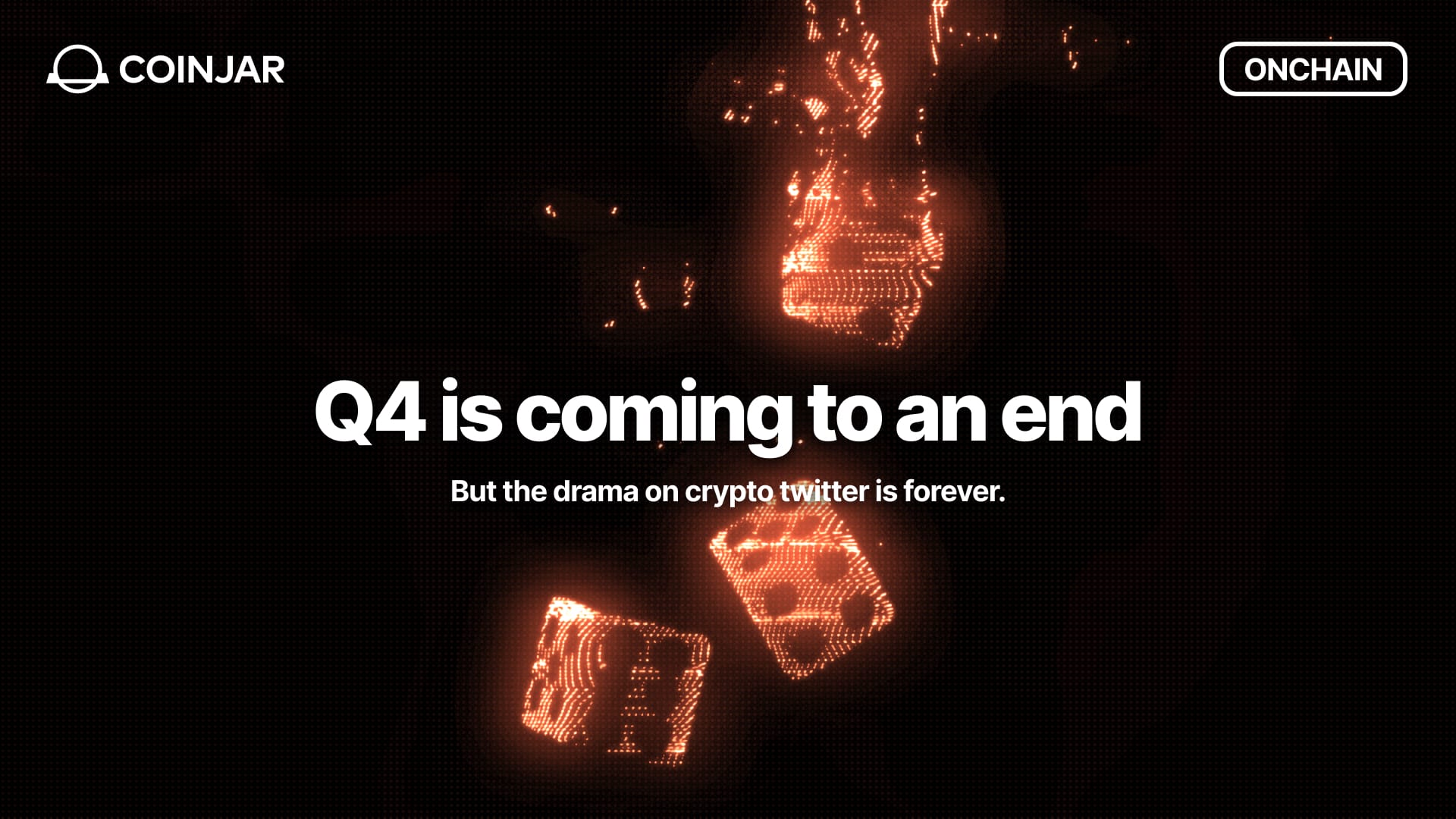Onchain: Tornado Cash sanctions, BlackRock x Coinbase, ETH’s hardfork chaos
August 11, 2022
Share this:

Story One
The Feds put Tornado Cash on their international sanctions list
If you haven’t heard of it before, Tornado Cash is DeFi’s version of a Bitcoin tumbling service. If you want to break a transaction chain, simply send your ETH or ERC-20 token to the relevant Tornado Cash pool and – when you’re ready – take out an equivalent amount in untraceable, unmarked tokens.
To its proponents, Tornado Cash is an essential part of crypto’s privacy proposition. The blockchain makes everything traceable but there are plenty of reasons that someone might not want the authorities or their fellow citizens to see where their money is going.
To its detractors – which includes the good people of the US Office of Foreign Asset Control – Tornado Cash is automated money laundering and the chosen service of North Korea’s hacking army. Backing them up is a Chainalysis report that suggests 23% of the transactions running through Tornado Cash this year have come from illicit sources – a doubling from 2021.
Being sanctioned by OFAC means that any American person or company who interacts with Tornado Cash is committing a federal crime with a maximum sentence of 30 years. Right now Tornado Cash has more than US$400 million sitting in its pools and the Feds think all of it is suss.
The affair has cast in sharp relief the split between crypto’s decentralised and centralised aspects. Tornado Cash itself is an open source, decentralised and self-sustaining app. At this point it couldn’t be stopped even if the founders themselves wanted to kill it. It will continue running as long as people find it sufficiently useful to use and secure the network.
However, it is very much possible to freeze and shut down those places where the protocol interfaces with the traditional internet and financial system. Circle, the issuer of USDC, froze all USDC assets attached to the specified Ethereum addresses. Github has removed the Tornado Cash code repository. The website has been taken down. All exchanges and crypto services with ties to the US will have to ban their customers from sending money to Tornado Cash.
While it’s hard not to cheer anything that makes it harder for North Korean and Russian hackers to stripmine the cryptoverse, the clampdown raises some very uncomfortable questions about the future of digital privacy. After all, 77% of those transactions were potentially legitimate and most of us probably like the idea of a world where every purchase we make isn’t immediately visible to our banks/governments/community.
But while we wait for the consequences to play out, at least one TC user is enjoying themselves, spraying transactions of 0.1E out to addresses owned by notable figures. Look OFAC! Now they’re all complicit!
Story Two
BlackRock signs on with Coinbase
Look, if this news had dropped 12 months ago Bitcoin would have hit 6-digits so fast that physicists would be accusing it of violating the speed of light.
But instead here we are in the depths of a crypto winter and broader macroeconomic upheaval and the price of Bitcoin has done, well, pretty much nothing.
Anyway, BlackRock, the world’s largest fund manager and ETF purveyor, with around US$10 trillion in assets under management, announced last week that it would be offering Bitcoin access to its institutional customers through Coinbase. As institutional on-ramps go, this feels like firing a rocket up a sharp incline into the foothills of the Himalayas.
Not that you’d know it from the current price action. Turns out that when the institutions actually arrived it didn’t really matter. Love u crypto winter.
Overheard on Twitter
“Thankfully I have never used tornado cash to launder money.
I use deutsche bank like a normal person.”
Story Three
Are you all ready to double your ETH?
Alright, I feel obliged to say up front that you will not be doubling your ETH.
Yet the cryptosphere has properly pretzeled itself this week after a Twitter user named Galois_Capital asked the question: well what exactly does happen if the Merge creates two separate versions of Ethereum?
Essentially when the Merge happens, a hard fork of the Ethereum network will probably occur. ETH2 or (ETHPOS) will be the new, shiny, energy efficient Ethereum backed by the developers and community. However, Ethereum miners who, for obvious reasons, have always opposed the transition to Proof-of-Stake, could choose to continue mining the old chain, producing ETHPOW.
This has happened to ETH before. After the DAO hack and consequent chain rollback of 2016 the old Ethereum chain kept on running under the moniker Ethereum Classic (ETC). It is useless, but to this day it will not die.
However, back in 2016 Ethereum was a much simpler chain than it is today. Now when the chain splits, every single smart contract, NFT, DAO and DeFi liquidity pool built on the Ethereum network will instantly double.
To be sure, almost anything of worth on the ETHPOW chain will quickly go to zero. But this is unprecedented territory and we have no idea exactly what might occur in the chaos.
If the miners do choose to go ahead with the ETHPOW fork, they could avoid the worst of it by not copying the ETH state over in its entirety (i.e. leaving out all the app deployments). But given their understandable grievances over the imminent loss of their income, it’s hard to know how charitable they’re going to be.
A Quick Break
I’m going on holiday somewhere warm, so there will be no Onchain/Offchain for the next two weeks. I hope crypto doesn’t do anything stupid in my absence. See you on September 1.
Luke from CoinJar
The above article is not to be read as investment, legal or tax advice and takes no account of particular personal or market circumstances; all readers should seek independent investment, legal and tax advice before investing in cryptocurrencies. This article is provided for general information and educational purposes only. No responsibility or liability is accepted for any errors of fact or omission expressed therein. CoinJar, Inc. makes no representation or warranty of any kind, express or implied, regarding the accuracy, validity, reliability, availability, or completeness of any such information. Past performance is not a reliable indicator of future results.
Share this:
On/Offchain
Your weekly dose of crypto news & opinion.
Join more than 150,000 subscribers to CoinJar's crypto newsletter.
Your information is handled in accordance with CoinJar’s Privacy Policy.
More from CoinJar Blog

Onchain: New Year, Same old industry
January 15, 20262026 has been off to a strong start, with constant drama from the White House. But it’s not on Trump alone to keep our cholesterol levels high. Crypto is contributing its...Read more
Goodbye 2025: CoinJar's Year of Global Growth and Innovation
December 31, 20252025 saw CoinJar push into new regions and launch major product upgrades. Here's a preview of what lies ahead.Read more
Onchain: Q4 is coming to an end
December 17, 2025But the drama on crypto twitter is forever. Story One EoY reflections kicking in At least if you are to believe the one X article that has been all over my feed in the...Read moreYour information is handled in accordance with CoinJar’s Privacy Policy.
Copyright © 2025 CoinJar, Inc. All rights reserved.
CoinJar, Inc. is a registered Money Services Business with FinCEN and licensed as a money transmitter, NMLS #2492913. For a list of states in which CoinJar, Inc. is licensed or authorized to operate, please visit here. In certain other states, money transmission services are provided by Cross River Bank, Member FDIC.
This site is protected by reCAPTCHA and the Google Privacy Policy and Terms of Service apply.